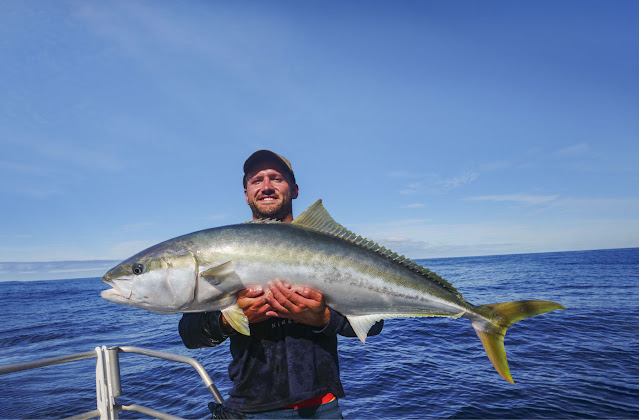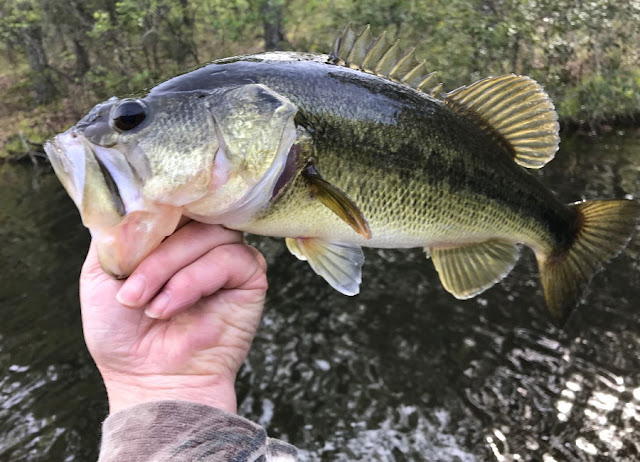How To Catch Kingfish
There is a popular misconception among anglers, especially freshwater fishermen, that one of the most difficult fish to catch with rod and line is the kingfish. While kingfish are not even close to being considered an easy fish to catch they are not nearly as hard as many people have been led to believe. Some years ago I was listening to a fishing program on the radio when a man called in asking for advice about catching kingfish from his boat. The host of the show responded by saying, "The only way to catch a kingfish is with a net."
It didn't matter how many times I heard this nonsense I never failed to ask myself, "How does he know?" I can't say with any degree of certainty that I have caught them all, but I do know for certain that I had never once seen anyone catch a kingfish by netting one. Maybe it had happened somewhere at some time...but not in the waters where I fish. Yet this myth lives on.
The truth of the matter is that this myth may have originally come about because, generally speaking, kingfish are not one of the easiest fish to catch. They tend to be very picky eaters. Although you can find many different species of bait fish in their habitat they will only eat certain ones depending on what stage of life they are in at the time. For example, immature fish will feed primarily on copepods while older fish prefer euphausids or pteropods.
In addition to being selective eaters kingfish are also rather fast swimmers and strong fighters once hooked. They can make numerous runs at various speeds before finally succumbing to their fate. In fact, in my own personal experience they are by far the strongest fish I have ever caught on light tackle. The time and energy an angler will need to expend in order to land one of these beasts is usually enough to discourage most people from even trying, which further compounds the myth that they are hard to catch.
I should point out here that kingfish do not deserve much credit for their strength. They are not what most people would consider to be "game fish." Instead they are more of a scavenger that will eat the excess food put out by commercial fishermen while at the same time preying on small bait fish. I know many anglers who have lost big barracuda, which is one of their favorite prey items, because a hungry kingfish was in the area. This is one of the reasons that they are generally considered to be pests by most commercial fishermen, even though I have never heard anyone refer to them as such.
In order to catch a kingfish you first need to find some kingfish! More specifically, you need to find a school of hungry kingfish and you need to find them soon after they have fed. This is because their metabolism speeds up dramatically as the food supply dwindles. If you don't get your bait in front of a hungry kingfish quickly it will probably be too late by the time one shows up, assuming that he comes at all!
Once you actually do manage to locate a school of hungry kingfish you need to get your bait in front of them quickly. Make sure that you are using the appropriate type of bait and make sure that it is fresh. The smellier the better, but no matter what you do don't leave it sitting out! Depending on how close you can safely get to them they may come charging in after your bait or they may simply swim around it for a while. If they charge in on the surface they will most likely hit the lure head first which means that you need to be ready with a plan of action before you actually hook one.
If, on the other hand, they choose to attack from below it is just a matter of using a weighted lure to get it deep enough that they can't ignore it. Even if their first attack is from below you should still know whether your bait will be going in head first or not, because the second attack may come from an entirely different direction! Kingfish have been known to show up at a hooked fish from anywhere within a 180 degree arc. They may even come from below and behind for a third and final attack (if you can call it that).
If you manage to hook one make sure that the drag is set correctly and remain alert because there is no telling how many other fish might join in on the proceedings! If you don't believe me go out sometime and find a kingfish feeding frenzy. Once you do you will never again refer to them as a hard fish to catch.
As far as lures go, I have had great success with both topwater and deep running plugs. Another thing that works is having your bait suspended from a balloon. Many people attach helium balloons to their line during the summer months when the fish are near the surface. This method is effective but it can be annoying if you happen to hook a big kingfish at night time because they don't like bright lights and will usually go straight down as soon as your light comes on!
Ground fishermen have also had good success by dragging live anchovies or squid across the bottom. The general consensus is that kingfish are not as picky as barracuda and will hit almost anything. If you want to make sure of the meal you cast a wire leader from your main line to your bait before you begin fishing.
Inshore anglers have a great time catching yellowtail snapper by using live pinfish or threadfin herring for bait. Kingfish are usually around snapper schools so you should have no problem finding one to use as chum to bring the others in close enough to see. There are also many kingfish tournaments conducted every year so there is always a chance that you will hook up with someone else that wants to prove their "kingdom" is bigger than yours.
Mullet fishing is also highly recommended as a means of catching kingfish. Since they are usually around mullet schools people have been catching them on almost every type of lure imaginable for as long as I can remember. One thing that you should definitely do if you hook up with a big one is to try and keep them away from boat traffic. Kingfish are slow to tire out once they get on the hook but you don't want to take any chances because they will still put up a fight at the end even if their head is dragging!
If you do happen to land one it would be best not to keep him if he looks too small for your tastes. The really nice thing about kingfish is that they are great to eat, so many people will pay you rather than let them go. If you do manage to secure a keeper your first instinct might be to want to keep him fresh by putting some ice on the gills until you get home. Don't do it! Kingfish aren't like other fish and if you try and ice them it will spoil their flavor.
If you plan on keeping your catch, the best way to handle them is to kill them quickly by striking them behind the head with a club or screwdriver. Once killed they should be gutted immediately because kingfish are known for vomiting up their stomach contents which can ruin their flavor. If you want to be real fancy and serve your kingfish whole, make sure that the head and tail are removed before it is cooked because they contain a lot of bones.
After catching a kingfish you can either fillet or use the entire fish for bait. Keep in mind that if you decide to catch more than what you can eat at a time you should dress the fish and freeze the fillets in plastic bags so they will keep longer. Kingfish are one of my favorite fish to catch because they put up such a great fight. I have memories of catching them with both artificial and live bait while drifting for other species like cobia, snapper, trout and flounder. I hope that this article will help you to catch your first kingfish if you aren't already familiar with how to go about doing it.
More social:
https://fishinghacking.webflow.io/
https://www.metal-archives.com/users/jamesfishing
https://seedandspark.com/user/james-fishing
https://www.stem.org.uk/users/jamesfishing
https://cycling74.com/author/6139ad50a76c911c37682b02
https://www.blogger.com/blog/posts/2091527538821839047
https://www.blogger.com/blog/posts/834381044484037509
https://teepepe.wordpress.com/
https://teepepe.mystrikingly.com/




Nhận xét
Đăng nhận xét